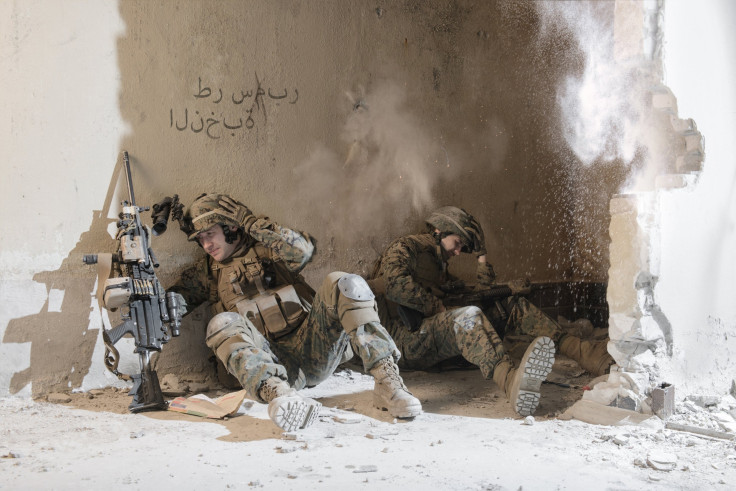The Hidden Cost Of War: Soldiers' Brains May Experience Early Aging Due To Bomb Blasts

Typically made from common materials, like car batteries, construction detonators, fertilizer, cell phones, and rocks and nails, improvised explosive devices (IEDs) were a major threat to U.S.-led forces in the most recent Iraq and Afghanistan wars. They came to be known as roadside bombs for where they were strategically placed, and were responsible for three out of five military deaths in Iraq and one in four deaths in Afghanistan. Countless others lost limbs. And then there were others who only suffered mild effects; however, according to a new study, the price they’re paying may be long-term.
Soldiers who were exposed to bomb blasts within 100 meters are now suffering brain degeneration at an accelerated pace, the study, published in Brain: A Journal of Neurology, found. Even soldiers who weren’t diagnosed with a traumatic brain injury (TBI), and who said they felt nothing from the blast, are experiencing the effects. “Generally as we age, the connections (in the brain) deteriorate,” lead author Benjamin Trotter, a biomedical engineer with the Department of Veterans Affairs (VA), told USA Today. “But with those people with blast exposure, it appears as though it’s happening faster.”
When a bomb explodes, it releases a wave of energy in all directions that travels up to 9 kilometers per second. This energy is strong enough to compress and accelerate air molecules, creating a supersonic blast wave, which is immediately followed by shock waves that throw more energy into whatever they pass through. The vacuum this energy creates as it expands then causes an equal and opposite reaction; a person’s body suffers from both excessive compression and decompression. Even if the blast isn’t strong enough to knock someone off their feet or cause a concussion, these changes in pressure may affect the brain.
The study looked at 256 veterans and pre-deployed service members. Among them were those who had been exposed to blasts (195 soldiers) and those who weren’t (61 soldiers). Some soldiers in the exposed group weren’t diagnosed with a TBI, while others in the unexposed group had been diagnosed with a TBI unrelated to a blast. In the blast-exposed soldiers’ brains, white matter — the part of the brain responsible for interneuron connectivity — had deteriorated at a faster pace, putting them at risk of dementia, Alzheimer’s, and other memory-related illnesses at an earlier age, the researchers said.
In addition to that, many of the soldiers weren’t aware they had a problem. While some said they never felt any symptoms from the blasts, others experienced mild loss of consciousness, altered mental statuses, and post-traumatic amnesia. However, because none of these symptoms lasted longer than a day, physicians considered them recovered. The findings refute that, suggesting there are long-term effects that remain hidden for some time.
William Milberg, a professor of psychology at Harvard Medical School and co-author of the study, told USA Today that if symptoms of these brain diseases appear five to 10 years earlier in a lot of people, “this would have tremendous consequences for society. We would have to figure out on a much larger scale ways of taking care of people.”
Nearly 2.5 million veterans fought in the Iraq and Afghanistan wars. Of them, about 40,000 have been diagnosed with TBIs they received in combat. Countless others, meanwhile, may be undiagnosed, unknowing of the changes their bodies are currently going though.
Source: Trotter B, Robinson M, Milberg W, McGlinchey R, Salat D. Military blast exposure, ageing and white matter integrity. Brain: A Journal of Neurology. 2015.



























